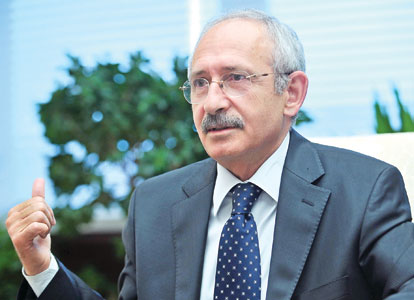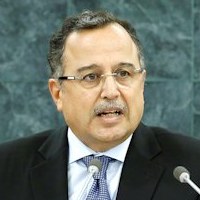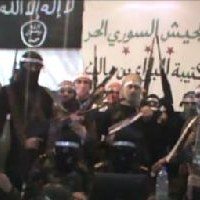![]()
Fri, March 11, 2011 | Turkish Policy Quarterly, Volume 9 number 4
Kemal Kılıçdaroğlu: “We Need to Hinder the Despotic Ambitions of AKP”
Interview with Kemal Kılıçdaroğlu
In this exclusive interview for Turkish Policy Quarterly, Kemal Kılıçdaroğlu (leader of Turkey’s main opposition party, CHP — Republican People’s Party) outlines his views and his Party’s position on the pressing foreign policy choices Turkey faces and the changing needs of the society. Answering questions on issues ranging from minority rights and the governance of religion, to policies towards neighbors and approaches to the uprisings in the Middle East, Kılıçdaroğlu relates the vision that will steer the “new CHP.” It’s reprinted here for your convenience.
What is the “new CHP” that has emerged from the recent General Congress of your party? With this restructuring, how has your party’s position in the Turkish political context changed?
Kemal Kılıçdaroğlu: What is new with the CHP is not just a matter of a new leader at the helm of the party. The change marks a deeper transformation of the CHP in response to the changing requirements of Turkey’s polity, society and economy. The CHP today is enhancing its connection with the people and for the people, true to its name. What guides the Party in this process is a social democratic vision and ideals for a just and prosperous society. Both continuity and change will define the substance of the new CHP drive. The CHP emphasizes continuity with the founding principles and values of our Republic that are at the same time tested pillars of our Party Program. That is why the CHP resolutely stands for democracy, secularism, social state, rule of law, human rights and freedoms. At the same time the CHP calls for change. We need to stop the rise and spread of poverty and corruption, and hinder the despotic ambitions of AKP. We need to restore respect for the will of all our citizens, not just for a numerical majority of them. The individual human being is the CHP’s ultimate reference. Turkey must be a country where all our citizens, irrespective of their faith, ethnicity, gender or handicaps are all truly equal before the law and enjoy equal opportunities.
Turkey has been regressing during the past decade under AKP rule. All feel insecure and ill at ease. Many are unemployed. Young people are frustrated. Women are marginalized. The AKP seeks Turkey’s golden age with a return to the past. The CHP seeks Turkey’s golden age in the future. Inspired by Atatürk’s tenets, the ideals of social democracy and the values of universal civilization, the CHP endeavors to turn Turkey into a creative, democratic and progressive society.
How do you assess the legislative changes in the past decade that have forged new balances in civil-military relations? Do you have any concerns about the current dynamics in this sphere and what do you think is needed to consolidate healthy civil-military relations in this country?
Kemal Kılıçdaroğlu: The CHP believes that the military should be completely divorced from politics. Politics is the job of civilians. In contemporary democracies today, the place of the military is well delineated. It must be this way with our military too. The CHP further considers that military expenditures should be subject to the same scrutiny as non-military appropriations. Those expelled from the armed forces should be able to appeal their cases. Civilian courts should try all punishable acts by members of the armed forces that are not of strict militaristic nature.
The Armed Forces in Turkey has a special place in the country’s history and is a well-respected institution. The CHP will protect the standing and the honor of the Turkish armed forces while keeping it outside the sphere of politics. We aim to restore mutual respect and solidarity between civilians and the military. We will take any additional steps that might be necessary to achieve a healthy civil-military relationship consistent with the norms of contemporary democracies.
How do you envision empowering women in Turkey, particularly on concrete policies such as the quota, the headscarf, and social welfare? Will your party engage the existing effective women’s NGOs to increase the number of women in its ranks and draw up new policies?
Kemal Kılıçdaroğlu: Gender equality is a top priority for the new CHP. We believe that no society can realize its full potential without the equal partnership and joint effort of women. There can be no meaningful progress unless women are equal partners in all sectors of political, economic, social and cultural life of the nation. The CHP will make the concept of gender equality an ongoing reality in our lives. Our women’s branches are working diligently. They are in close contact with all women’s NGOs. A large group of volunteers is working with them.
The CHP will firmly insist on equality in the field of education and make sure that girls have equal access to education. We will see to it that women do not become confined to their homes, instead urging them on and presenting opportunities for them to take part in the social and economic life of the nation. The CHP attaches special importance to having more women in politics. That is why the CHP has already established quotas for women, a minimum of 20 percent throughout the organizational structure of the Party. After the upcoming elections, there will be many more women from the CHP in the Turkish parliament.
One of our leading projects, “the family insurance”, aims primarily to provide families in financial need with full social security. The CHP wants to see women of Turkey as equal, free and self-confident citizens. We will resolve particular issues such as the headscarf, but with the requirement of a broad consensus.
A litmus test of any measure regarding women will always be read in terms of its contribution to women’s equality and dignity as free and equal citizens of our country.
Universities and youth are ordinarily a significant base for social democratic parties. Do you think the CHP has utilized this potential and how do you plan to expand in this sense?
Kemal Kılıçdaroğlu: Youth, in universities or elsewhere, are the CHP’s permanent priority. Today the CHP is making a sustained effort to engage youth to take ownership of the future of our country. Our youth branches have been renewed and are very active. They are supported by a large group of young volunteers.
Today more than 25 percent of university graduates are either unemployed or underemployed. Many students are unable to attend the universities of their choice. The fees are prohibitive for most of them. There is no freedom on campuses. The quality of education is generally low and extremely uneven. When police are not confronting students, the Higher Education Council (YÖK) interferes with their lives and their education.
The CHP will improve the quality of higher education. Education at all levels will be education that is based on knowledge. We will abolish the Higher Education Council (YÖK). We will reestablish academic, financial and administrative autonomy of universities. One major plank of our party program is the creation of jobs for our young people. We also intend to encourage and promote youth to be active in politics. There are many young politicians in our Party Council.
Our approach will not be a showcase, but an integrated and sustained approach to all the problems of our youth. They are the inheritors of our future. We will treat them accordingly.
The Kurds in Turkey used to be part of the social democratic base but CHP’s policies of the last decade resulted in a loss of the Kurdish vote. How will you re-attract the Kurds to your social democratic vision?
Kemal Kılıçdaroğlu: There are no exclusions; there are no barriers. The CHP stands for the rights of all citizens. The problems of any group of our citizens are ours to solve. Ethnicity is a fundamental fact and those who claim it as part of their identity and give expression to it should be free to do so. However, ethnicity should serve as a factor of unity, not disunity, among the different components of our people. In our philosophy, the building of political, economic and cultural walls of separation based on ethnicity or on matters of faith is not consistent with democracy and social justice.
Democracy works out its problems based on the rule of law and the equality of all its citizens before the law. The CHP promises freedom, pluralism and inclusion. We promise the elimination of regional differences. We will implement a multidimensional program to eliminate all different manifestations of the problem. All the different elements (racial, ethnic, religious, sectarian, gender, culture, etc.) that go into the making of our individuals or various collectivities of our citizens, at the end, produce equal citizens.
The Alevis’ expectations from the current government have by and large not been met satisfactorily. Though the Alevis’ traditionally vote for social democrats, the CHP has also been losing their support. How do you intend to not only draw their support in elections but also meet their expectations thereafter?
Kemal Kılıçdaroğlu: The CHP’s answer is short and clear regarding the Alevi problem in Turkey. The existence of such a problem is actually shameful for Turkey’s democracy. The Alevi community is entitled to practice its faith in its places of worship and pursue its way of life as it sees fit. In a state of law and justice, the rights guaranteed to others in society cannot be withheld from a particular community. Whatever applies to others applies to the Alevis. The CHP does not regard the issue as a source for obtaining votes, but views it as a basic human rights issue. The CHP does not plan to win the next round of elections by appealing to the differences among our people, but by presenting tenable solutions to bread and butter issues, to the demands for freedom, respect, decency, and honesty.
What is your position on mandatory religious classes in schools, and, along the same lines, how does the Diyanet institution (The Presidency of Religious Affairs) fit into your vision of secularism?
Kemal Kılıçdaroğlu: The CHP’s position on mandatory religious classes in schools is that we should abolish them. In their place, we call for the introduction of courses on all religions and beliefs, both in a historical and cultural context in conformity with the stipulations of our Constitution. In a secular policy like ours, schools cannot be instruments for the propagation of faith.
The Diyanet (The Presidency of Religious Affairs) Directorate is an indispensible institution. But in its present form it falls short of what is actually expected from such an organization. It serves essential functions and duties. However, it must do more. It must be inclusive and help keep religion out of politics. We need to reform the Directorate. The guiding principles of any such reform are the terms of our Constitution and the needs of all our citizens of different faiths and beliefs.
How do you approach the freedom of expression issue and in particular Article 301 of the Penal code?
Kemal Kılıçdaroğlu: There should be no restrictions on the freedom of expression. All existing restrictions are obtrusive and should be removed. At the same time, what we do should be consistent with the provisions of the Statute of the Council of Europe and the precedents set by the European Court of Human Rights. Today, there are tremendous pressures over the freedom of expression and the media. Everyone fears that their phones are tapped and that they are being listened to. We are definitely going to see that all these shameful practices cease. We will raise the standards of freedom of expression to the highest possible level. This applies to Article 301 too. Freedom of expression is a quintessential parameter of democracy.
In 2008 the CHP took the Foundation’s law to the Constitutional Court for its annulment, particularly based on the articles pertaining to minority rights. You were one of the advocates of this application. What is your view of the rights of non-Muslim citizens of this country?
Kemal Kılıçdaroğlu: Our non-Muslim minorities are the precious legacies of our past and we believe we must do everything to preserve and protect their rights and privileges. Turkey claims and aspires to be a democracy based on the rule of law. We also have treaty obligations toward our minorities. We have to be consistent with our values and ideals as a society. We think Turkey can set an example to the whole world by granting the highest conditions of security, well-being and freedom to its minorities. This would make Turkey all the stronger as a secular democracy.
What is your approach to the EU accession process — how would you do things differently from the current government of Turkey? Do you think the government really wants Turkey’s EU accession to materialize; is the effort a sincere one?
Kemal Kılıçdaroğlu: The CHP is committed to the goal of Turkey’s accession to the EU. The EU and NATO are the cornerstones of the Euro-Atlantic community. Turkey has been a staunch member of that community and should stay firmly there. EU membership is not and cannot be, therefore, a simple foreign relations issue for Turkey. For both sides, the relationship has a vital character with implications for the EU’s future and for the future of the world at large. The AKP Government adopted a pro-EU policy in its earlier years in government since it had no alternative policy of its own. Today, the AKP pays only lip service to the accession process and tries to shift all blame in the negotiations onto our EU partners (though there is a lot for which they do bear blame). In fact, the AKP does not feel at home as a member of the Euro-Atlantic community. The AKP is more comfortable in other regions such as the Middle East. On the other hand it creates unease in these regions with its policies and continuous Ottoman references.
What the CHP will do is to reinvigorate the accession negotiations while at the same time seeking clarification on terms of negotiations in order to proceed in the right direction. The reiteration by the EU that accession — and nothing else — is Turkey’s goal and that the EU will apply to Turkey only those criteria that it applies to other candidate countries are prerequisites. Finally, the CHP will call for the EU to make a concerted effort for the resolution of the Cyprus problem.
What do you think the EU does wrong when it comes to managing Turkey’s accession process?
Kemal Kılıçdaroğlu: The list is unfortunately rather extensive and goes back a long way. Linking the Cyprus problem to Turkey’s membership has perhaps been the most serious mistake by EU politicians. The EU has also frequently failed to carry out its solemn commitments toward Turkey. The terms of the Additional Protocol regarding the free circulation of labor have never been fulfilled. The promise that Greece’s membership would not impede Turkey’s EU prospects was not kept. The EU raises the threshold of its demands from Turkey by setting conditions that are not applied to other candidate countries. Many European leaders in the past and today take a public stand against Turkey’s accession whereas, in conformity with EU decisions, they should be doing exactly the opposite. This is a partial list. However, we must look to the future and not be bogged down by mistakes made by either side in the past. At the end of the day, Turkey will become a full member of the EU and all these elements will be part of the colorful history of Turkey’s saga with the EU.
What would be your strategy towards overcoming the Cyprus deadlock?
Kemal Kılıçdaroğlu: The Cyprus issue is a complex one and a vital national cause for Turkey. This problem has to be solved, sooner rather than later, for the benefit of all parties concerned. The founding parameter of such a settlement has long been established and agreed by the United Nations, as well as by the international community. The core of this founding parameter, as agreed upon by the two Cypriot leaders on 23 May 2008, is “A federal partnership formed by two constituent states, based on the political equality of the two peoples of the Island’’.
The continuation of the deadlock is due both to the lack of political will on the part of Greek Cypriot politicians and the attitude of Greek Cypriots. This approach was openly declared in the Referendum of Annan Plan.
After joining the EU before reaching a solution to the Cyprus problem, the Greek Cypriots lack all incentive to sincerely seek a negotiated solution. The Cyprus issue cannot be solved with onesided concessions nor can the status quo continue indefinitely.
The CHP will encourage and support all efforts to reach a just and lasting state of affairs on the Island that will protect the interests of both sides. Further, the CHP is of the opinion that an incentive should be created for the Greek Cypriots to seek a fair and balanced solution to the dispute.
Anti-Americanism has been rising in recent years in Turkey. Given the need for the two countries to work together on certain issues in our neighborhood, do you feel this anti-Americanism will reduce the maneuver space of the Turkish government and how do you think this needs to be managed in moving forward?
Kemal Kılıçdaroğlu: The war in Iraq and the consequent invasion of Iraqi territory by U.S. forces caused great concern in Turkish public opinion. The invasion strengthened the PKK in North Iraq and re-ignited terrorism in Turkey. The U.S. has shown no tangible opposition to this trend and has not engaged in any concrete cooperation with Turkey. This development is one of the main reasons why anti-Americanism is on the rise in Turkey. Mainly this state of affairs still poisons the normal conduct of relations between the two allies. However, the American approach is only half of the story. The AKP government has maneuvered the Iraqi crises in a very inexperienced and unprofessional way.
The AKP nowadays conducts a two-faceted foreign policy towards the U.S., covert and overt. The AKP, behind closed doors, is in full agreement with U.S. authorities and acts in conformity. On the other hand, in public, U.S. policies are openly condemned by AKP members of the highest rank.
In recent years, the AKP government has taken a different and an increasingly unilateralist approach in foreign relations, with pretensions of being not just a regional, but also a global power. The AKP has caused Turkey’s foreign relations to become both sensitive and delicate. The AKP has long refrained from taking any responsibility for the country’s relations with the U.S. but instead galvanized public opinion against it for reasons both of domestic politics and in order to pursue its unilateralist policies elsewhere more comfortably. What we need to do is to put the Turkish-American relationship back on a functional track based on equality, reciprocity, mutual confidence and respect. The relationship between Turkey and the U.S. is a highly important one. When it is stable and productive, it has significant benefits for peace and security in the Middle East and in other regions.
The CHP will work for a transparent relationship with our American allies, focusing more on areas of convergence and at the same time making an effort to reduce points of divergence.
What are your views on the Turkish government’s “zero problems with neighbors” policies? Are these regional policies adversely affecting relations with traditional allies like Israel, Azerbaijan, U.S. , and NATO?
Kemal Kılıçdaroğlu: Put bluntly, I say that the “zero problems with neighbors” policy as pursued by the AKP Government has failed, indeed, backfired in most instances. While there is more to come, the costs of this failure are already visible. The state of our relations with Azerbaijan is just one case in point. The approach of good neighborly relations with other countries –a traditional goal of Turkish foreign policy– dates back from the early years of our Republic: Atatürk tried to improve our relations with our neighbors and forged alliances with them. As a policy, it is not new. What is new is its fancy nickname, a catchphrase that distorts reality, to our country’s disadvantage. What is different from the past is the AKP’s failure to attain the desired outcome with this policy. In fact, those bilateral problems that existed with our neighbors when the AKP came to power in 2002 remain unresolved today. The development of trade and economic relations with our neighbors is a good thing, but it does not prove the success of the “zero problems with neighbors” policy. All of our problems with our neighbors remain unsolved while new troubles constantly arise in almost all of our relationships. On a broader scale, because of its regional policies, Turkey has in effect distanced itself from its allies and friends in the Euro-Atlantic community. Its deteriorated relationship with Israel has disqualified Turkey from playing any meaningful role in the Middle East peace process. Turkey is perceived now as a party to the Arab-Israeli conflict, and no longer as a trusted intermediary.
Turkey took the lead, along with Brazil, against the United Nations Security Council vote regarding Iran’s nuclear aspirations. What would your position have been? And faced with a looming decision about taking part in the NATO missile defense system, what would your position be?
Kemal Kılıçdaroğlu: Iran is a major regional power and our valued neighbor. Iran has legitimate security concerns, as it feels threatened by foreign powers. The U.S. and others accuse Iran of a secret nuclear weapons program. Iran denies this and says its program is for the peaceful use of nuclear energy. However, Iran has an obligation to be transparent and has to comply with the terms of NPT, to which it is party. A nuclear Iran would further destabilize the region and change the fragile balances of the region where Turkey also is a major actor.
The CHP would exert calibrated efforts to resolve the issue by diplomatic means, acting in harmony with the international community.
The Turkish signature to the principle of missile defense at the NATO Lisbon Summit was the right decision. NATO is still the anchor of defense of the Euro-Atlantic system. Any threat to Turkey is likely to come from the regions in our vicinity. The implementation stage of missile defense is subject to further negotiations. The CHP will make sure that the details yet to be agreed upon in this context are consistent with both Turkey’s requirements and special circumstances.
Does the deterioration of relations with Israel — that has been intensifying since the World Economic Forum meeting in Davos in January 2009 — serve Turkey’s interests?
Kemal Kılıçdaroğlu: The answer is no. In the first place, the deterioration of our relations with Israel has caused significant losses in the various dimensions of our bilateral relationship. Trade and tourism went down. Cooperation in certain critical fields does not exist anymore. Turkish companies today are not welcome in Israel. The same applies for Israeli trade and economic ventures in Turkey. But the greater loss is of a strategic nature and affects the entire region. Although Turkey is the leading power in the area, no longer enjoying the trust of Israel puts it out of the Middle East equation, further weakening the prospects of peace and stability in this key region. The persistence of the Arab-Israeli conflict and the posturing of countries from both within and outside of the region could unexpectedly lead to situations that might hurt Turkey’s vital national interests.
How do you assess the wave of uprising spreading across the Arab world?
Kemal Kılıçdaroğlu: The CHP is closely following the recent developments that started in Tunisia and continued in Egypt and have spread, to some extent, to Yemen, Jordan, Bahrain and Libya. We are deeply saddened by the loss of life, casualties and suffering during these popular uprisings. We urge the authorities of the concerned countries and the authorities in other Arab countries to refrain from using force against civilian demonstrators. The Arab people have suffered long enough. No police measures or use of force can silence the voice of the people. It is time for change and reforms in the direction of greater democracy and a fair distribution of prosperity and opportunities. Freedom of expression, respect for human rights, rule of law, and gender equality must be among the goals of change in these societies. The CHP will work with governments, appropriate political parties and civil society organizations in the peaceful and progressive realization of the democratic demands and aspirations of the Arab people.
End



 RSS
RSS











Kemal Kılıçdaroğlu: “We Need to Hinder the Despotic Ambitions of #AKP” | #Turkey #Erdogan http://j.mp/hTGrWV
RT @CrethiPlethi: Kemal Kılıçdaroğlu: “We Need to Hinder the Despotic Ambitions of #AKP” | #Turkey #Erdogan http://j.mp/hTGrWV
RT @CrethiPlethi: Kemal Kılıçdaroğlu: “We Need to Hinder the Despotic Ambitions of #AKP” | #Turkey #Erdogan http://j.mp/hTGrWV
Kemal Kılıçdaroğlu: “We Need to Hinder the Despotic Ambitions of #AKP” http://j.mp/i7rGZD #CHP #Turkey
[…] leader of Turkey’s opposition says that the current, Islamist regime’s supposed policy of getting along with everyone — […]
RT @HansAHCdeWit: Kemal Kılıçdaroğlu: “We Need to Hinder the Despotic Ambitions of #AKP” http://j.mp/i7rGZD #CHP #Turkey
RT @HansAHCdeWit: Kemal Kılıçdaroğlu: “We Need to Hinder the Despotic Ambitions of #AKP” http://j.mp/i7rGZD #CHP #Turkey
Kemal Kılıçdaroğlu: “We Need to Hinder the Despotic Ambitions of AKP” | Middle East news, articles,. http://fb.me/yxLbDtoI
RT @CrethiPlethi: Kemal Kılıçdaroğlu: “We Need to Hinder the Despotic Ambitions of AKP” | Middle East news, articles,. http://fb.me/yxLbDtoI